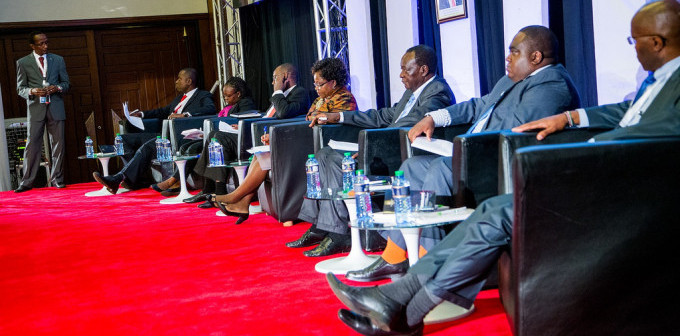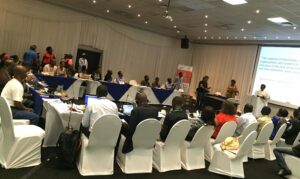![]()
Data Forum For Sustainable Development in Kenya


The data revolution in Kenya has not only begun but is also inspiring other Africa countries on how data can help us achieve the ambitious Agenda 2063. The National Forum on Harnessing the Data Revolution for Sustainable Development held on August 28-29th 2015 is a platform that has catalysed the formation of a National Partnership on Development Data in Kenya. It takes into account the High Level Panel report on the post 2015 development agenda which called for a data revolution to make information and data more available, more accessible and broadly disaggregated.
Beginning these conversations on the data revolution now in Kenya is not only historical but a stepping-stone in preparing for the future. Why a data forum now and not before? Is it timely? Is it relevant? This was historical in every sense of the word, as it prepares us in ushering in the new sustainable development goal (SDGs) in New York on 28-29th with a clearer idea on how data is part of the means of implementation for the SDGs. Governments are set to sign them at the United Nations General Assembly (UNGA) in a few days triggering a global process that will focus on efforts to ensure this time round we leave no one behind.
In the just concluded Data Forum, thematic pillars were created around the concept of data communities which is inspired by the Africa Data Consensus (ADC) agreed on 30 and 31 March 2015. The ADC envisions data communities that are constituted of people/institutions that share a social, economic or professional interest across the entire data value chain- spanning production, management, dissemination, archiving and use. An objective of the data forum was to convene these communities of data producers and users along thematic lines as articulated in the Africa Data Consensus to provide concrete input to the means of implementation for Kenya’s domestication of the new development framework. Thematic pillars are meant to enable the creation of data ecosystems which are more specific, effective and time bound. The need for data and these new data community based ecosystem is one way we can generate the data to make more informed decisions especially within the context of long term development plans and the new ambition to leave no one behind.
The National Forum on Harnessing the Data Revolution for Sustainable Development focused on eight thematic pillars representing data communities in those areas. The thematic pillars; Agriculture, ICT, Education, Inclusivity and Health. The thematic pillars were each co-chaired by three institutions which convened the meetings and drove the conversations at different levels. The data forum was mainly informed by the conversations happening within these thematic pillars. The idea is to harness the thematic pillars to have a concrete way forward. As communities, we need to ensure that sustainable development data is available not just at national level but also within the devolved governments and all the way down the chain to citizens at the grassroots.
Planning without accurate information is simply guess work, which results in countries incurring high costs in the long run. Therefore, for better outcomes to be achieved it will require that every goal be implemented very deliberately, with achievable time frames informed by real, accurate and analyzed data.



